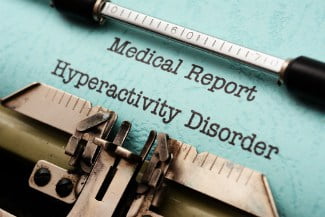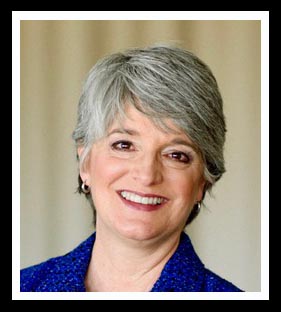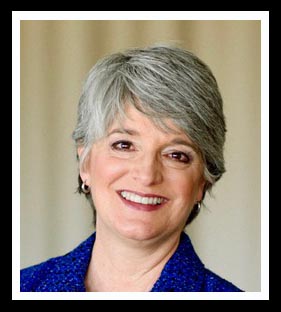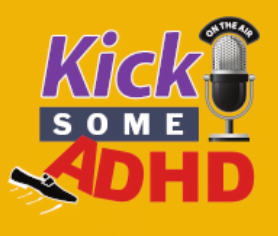 Are you uncertain if you should call it ADD or ADHD? You’re not alone.
Are you uncertain if you should call it ADD or ADHD? You’re not alone.
As though it’s not challenging enough to have a condition with such varied and unpredictable symptoms, now we can’t seem to agree on what to call the darn thing.
Actually the official, clinical name as of the latest diagnostic manual, the DSM-IV, is Attention Deficit Hyperactivity Disorder (ADHD) – even in cases where the person isn’t hyperactive. (I think they included a ‘/’ in AD/HD but it’s rarely used anymore.)
Some ADHD professionals and publications now use ADHD and some have stuck with the old ADD. Some, like me, can’t make up our minds and use both.
While writing the ADD Success Blog I’ve started using ADHD because it’s the most common term. Deep down, however, I’m a tad offended that those of us without the H (Hyperactivity) are labeled with a broad brush.
And then there’s the whole Executive Functioning movement.
I’ve written about this before, but these days in ADD or ADHD circles, Executive Functioning is becoming the current buzz word. Will ADHD ever be renamed Executive Functioning Disorder? We’ll have to wait and see.
If you’re wondering what Executive Functioning is, it refers to the human thinking systems that control things like setting priorities, controlling impulses, organizing, following-through and focusing. All functions that are key to ADD or ADHD.
Think of Executive Functioning like the brain manager who coordinates the daily operations of your brain and how and when you do things. Challenges with Executive Functioning impact the symptoms of Adult ADHD.
More new ways to describe ADD or ADHD
To make life even more interesting, Dr. Charles Parker, in his insightful ebook ADHD Medication Rules offers up a totally different way of diagnosing Attention Deficit.
He feels the current diagnosis of hyperactive, inattentive and combined ADHD are simply too vague.
I’ll blog more about this in a future blog, but in his book, Doctor Parker suggests breaking ADHD down like this instead:
- Acting ADHD – meaning Acting Without Thinking – rather your traditional Hyperactive Attention Deficit
- Thinking ADHD – meaning Thinking Without Acting – the traditional Inattentive ADD
- Avoiding ADHD – Not Acting and Not Thinking – Dr. Parker calls this a frequently missed diagnosis where the person avoids all change.
After spending years in the Attention Deficit trenches with both my ADHD Coaching clients and my own brain, I happen to agree with him. He’s come up with much better descriptions than Hyperactive and Inattentive.
How will this all end up? Good question. We’ve got to stay open and flexible and see how things land. For now I’ll use ADD or ADHD.


 Tired of struggling with ADHD? You’re in the right place. ADHD Success is loaded with free, practical tips to help you get organized, manage your time, and live more easily with Adult ADHD. Like what you read? Sign up for the newsletter now! No Spam. I promise!
Tired of struggling with ADHD? You’re in the right place. ADHD Success is loaded with free, practical tips to help you get organized, manage your time, and live more easily with Adult ADHD. Like what you read? Sign up for the newsletter now! No Spam. I promise!
No matter what the term we use, I feel that parents with children and persons suffering from ADHD/ADD should seek alternatives to the current medications available. I have a child with ADHD. I tried the Ritalin with little to no success. I found the drug made my child lethargic and once it wore off she would either crash or become even more hyper-active. Believe me, I tried it for a period of time to see if it would build up in her system and alleviate not only the behavior but the side effects. It did not. After doing much research I found a program that is working for my child and my family. I use Play Attention. Play Attention is a program that builds behavioral shaping. Since investing my child’s mental health into this platform I have now learned that they are using this program at nuclear power plants, nascar mechanics use it. Personally, I just want my child to live a normal, loving life and enjoy life to the maximum. What are your thoughts concerning medication and ADD/ADHD? Jnystrom
I’m glad Play Attention is working well for your daughter. My opinion on ADHD medication? I think to take or not take ADD / ADHD medication is a very personal decision. Some of my ADHD coaching clients take ADHD medication and some don’t. The meds work really well for a lot of people and not so well for some. Occasionally the side effects are severe. I respect my coaching clients’ decision either way and work with them to achieve the best brain functioning possible. ADD / ADHD is not a black or white condition. Functioning depends upon the person’s environment and severity of symptoms. Some people must have the medication in order to live successfully with Attention Deficit. That said, medication alone isn’t a substitute for good self-care – diet, exercise, sleep and fish oils. I get discouraged by the ‘pro or against’ medication discussions. Again, it’s a very personal decision and people need to do what’s right for them or their child without having it debated in the popular press.
This is further confused by the three subsets of the now blanket “ADHD”
ADHD-PI (ADHD- Primarily Inattentive) Which is the old ADD, as I am to understand it. Trouble paying attention but not too fidgety or impulsive.
ADHD-PH (ADHD-Primarily Hyperactive) Impulsive, fidgety, but can actually listen to things for longer than .006 seconds.
ADHD-C (ADHD-Combined) The best of both worlds! This is the one your old buddy John here has.
I guess this is what Dr. Parker was describing, right?
It seems the closer I get to understanding me, the more complicated the guys and girls in white lab coats make it.
Hi John! “They” don’t really know what to call ADD / ADHD. Don’t be surprised if the name changes again in the next few years to something about Executive Functioning.
There are so many things wrong with the name Attention Deficit. It’s not really a deficit of attention but a deficit of brain stimulation. People with Inattentive type have brains that are very hyperactive. It just doesn’t show outwardly. I could go on…
Doctor Parker has three categories that he uses for ADHD based on functional (cognitive) criteria rather than outward appearances.
– Acting ADHD – acting without thinking. the standard hyperactive type.
– Thinking ADHD – thinking and not acting. Acting too late or not acting at all.
– Not Acting and Not Thinking – avoidance.
Interesting stuff!! Thanks for checking in,
Dana